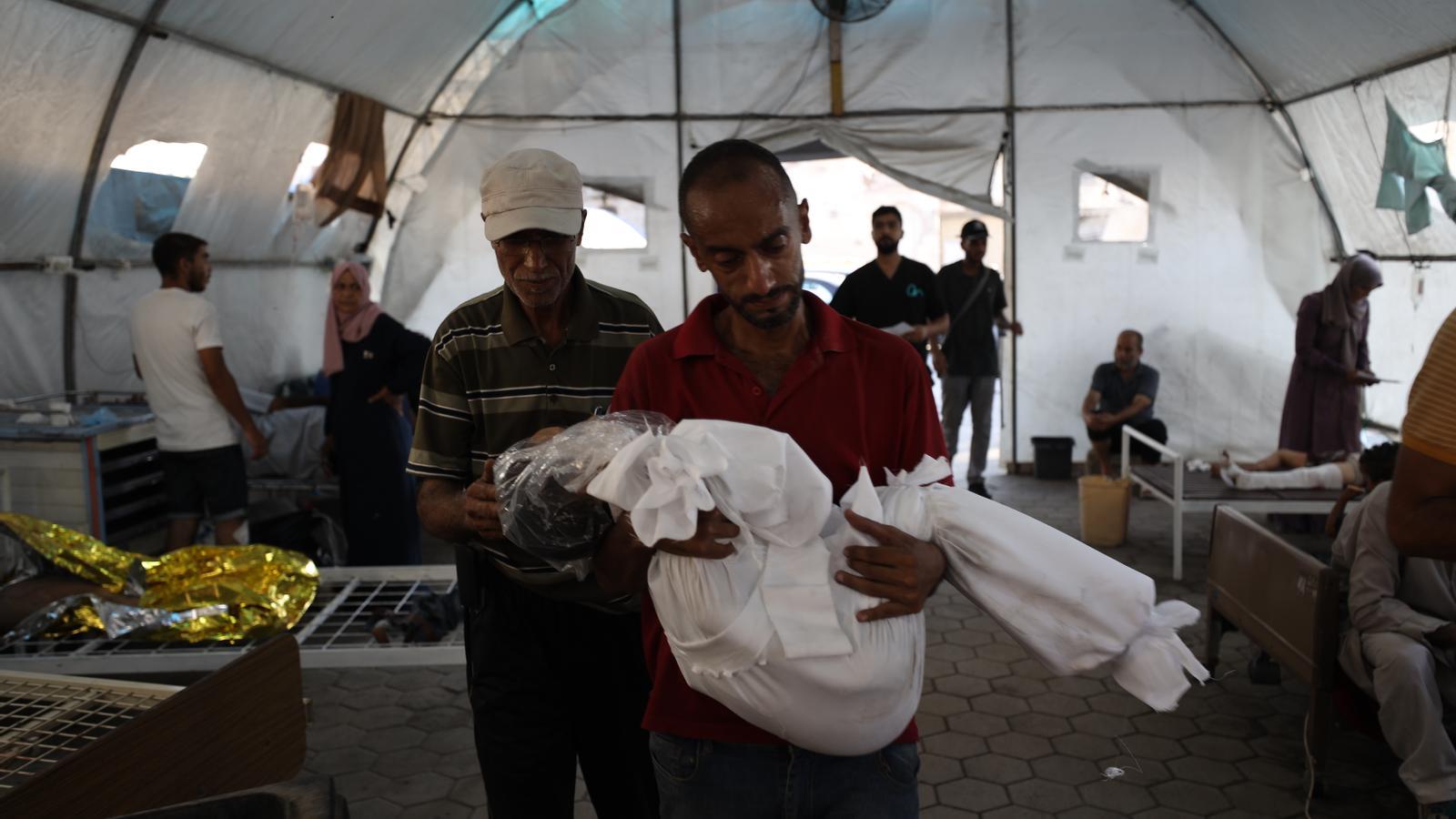Netanyahu says he is resuming negotiations with Hamas as he prepares for the final assault on Gaza City
The Israeli army orders the evacuation of hospitals in the capital of the Strip, where one million people are still living in poverty.

BarcelonaIsraeli Prime Minister Binyamin Netanyahu announced Thursday night that he has instructed the start of negotiations to secure the release of all hostages still held in Gaza and end the war under "conditions acceptable to Israel." The message, recorded on video at the headquarters of the IDF's Gaza division, coincided with the approval of military plans for a massive assault on Gaza City, in the north of the enclave, in an offensive seeking to defeat Hamas and secure complete control of the territory.
The announcement came just three days after Hamas accepted the temporary truce proposal pushed by Qatar and Egypt, which provides for a 60-day ceasefire and the release of half of the hostages still held in Gaza. However, Netanyahu rejected the offer and maintains that the two priorities—the destruction of Hamas and the freedom of all hostages—"go hand in hand." According to Israeli media, the government will only accept a comprehensive agreement that guarantees the simultaneous return of all hostages, both alive and dead, the demilitarization of Gaza, Israeli control of the borders, and the formation of a local administration not linked to either Hamas or the Palestinian Authority.
Hamas, for its part, has accused Netanyahu of obstructing mediation efforts. The Islamist organization denounced on Wednesday that the prime minister "disdains" the ceasefire proposal and is acting to prevent a pact. Israeli sources admit that contacts could resume soon, still without a defined location, but insist that Israel will not endorse a partial truce.
New evacuation
Meanwhile, the Israeli military command has warned humanitarian organizations and medical officials in Gaza to prepare to evacuate the entire population of Gaza City—one million people—to the south ahead of the imminent ground offensive. Hospitals and health centers received evacuation notices, a measure that the Hamas-controlled Gaza Health Ministry categorically rejected, considering it "deadly for what remains of the health system."
The United Nations warns that attacks have intensified with "incessant bombardment" and that the evacuation order could cause a new wave of civilian casualties and worsen the humanitarian collapse. Despite the risks, agencies and NGOs have reiterated their willingness to continue providing assistance to those who cannot—or do not want to—leave the city.
The death toll reflects the magnitude of the tragedy. According to the Gaza Ministry of Health, at least 62,192 people have died since the start of the war on October 7, 2023, when Hamas's attack on southern Israel It left some 1,200 dead and 251 kidnapped. The ministry's figures are considered by the UN and several international organizations to be the most reliable source available.
And according to a joint investigation by the British newspaper The Guardian, the Israeli-Palestinian media +972 Magazine and the Hebrew portal Local Call, based on classified Israeli military intelligence data, only 17% of the dead in Gaza were identified as Hamas or Islamic Jihad fighters. The remainder—up to 83%—were civilians. This percentage would place the conflict among those with the highest rate of non-combatant casualties in recent decades, comparable to episodes such as the Srebrenica massacre, he Rwandan genocide or the Russian siege of Mariupol in 2022.
Hunger as a weapon of war
The humanitarian crisis is not limited to the direct victims of the bombings. The international organization IPC (Integrated Food Security Phase Classification), which assesses food insecurity conditions, anticipated that it could formally confirm the declaration of famine in Gaza today. Last month, it had already warned that the "worst-case scenario" was materializing, especially in the north of the territory, precisely where Israel is concentrating its new offensive.
Despite mediation attempts by Egypt, Qatar, and the United States, positions remain divided. Israel estimates that only about twenty of the fifty hostages held are still alive after 22 months of war. Netanyahu's insistence on linking any agreement to the demilitarization of Gaza and Israeli control suggests that the assault on Gaza City will occur in parallel with talks that, for now, appear doomed to stall.
The prime minister's message leaves the door open for further negotiations, but also signals the government's determination to complete the military offensive. The outcome will depend on whether the two logics Netanyahu wants to make compatible—bombing and diplomacy—can advance in parallel or, as many critics warn, end up canceling each other out.
Thus, while the prime minister's message leaves the door open for further negotiations, it also signals the government's determination to complete the military offensive. The outcome will depend on whether the two logics Netanyahu seeks to reconcile—bombing and diplomacy—can advance in parallel or, as many critics warn, end up canceling each other out.
